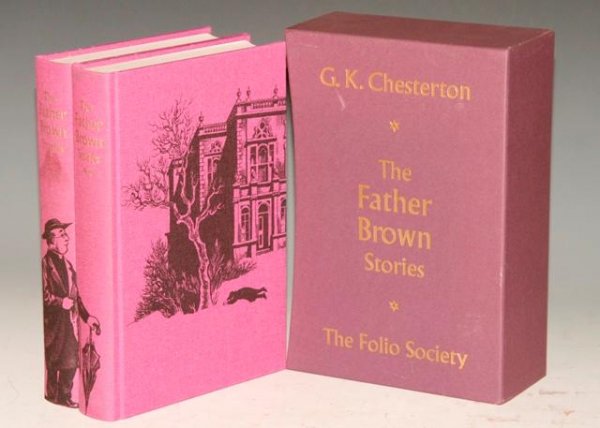


( )įor the life of me, I am mystified that this independently published "book" could convey the real import of the Father Brown mysteries. I *am* interested to watch the TV show (part of the reason I read this), however, as I think that there's potential to do something interesting with the material in a different format. In the end, I think that the highest highs of this make up for the lowest lows, but I don't know if I'd want to push myself through something like this again. Chesterton kind of gesticulates towards this at the beginning with an interconnected narrative about Brown and Flambeau, but once that gets settled the roteness of the stories becomes really apparent. I developed a theory reading this that you need to have one or the other to keep things going - either you need to be able to see inside the detective's head, or they need to be such an enjoyable character that that lack of introspection doesn't matter. Likewise, a lot of modern detective novels (thinking of Tana French, Adrian McKinty, etc here) lack what Chesterton (in what I freely acknowledge is a good joke) calls "opium smoking and acrostics". Sherlock Holmes isn't someone who has much of an inner life, but his various eccentricities make him fun to read.

Father Brown's lack of a life outside "priest who appears in the nick of time to solve a mystery", and his lack of eccentricities, make him come across as a flat character to me. However, reading dozens of these back-to-back-to-back lays a lot of things very bare. There are two stories here that are, in my opinion, incredible literary works of their own - "The Sign of the Broken Sword", which is maybe the only mystery I've ever read that does the "detective cracks a cold case from folklore and legends" plot well, and "The Head of Caesar", which could easily be stripped of the detective story trappings and presented as an out-and-out short horror story. The perfect companion for my weekly commutes to this city this semester. Balanced against this are the pleasures of Chesterton's habitual turn to paradox and view of life both comic and moral (without being priggish). Recurring throughout however is a trace of xenophobia Chesterton's references to blacks, while not as virulent of those of his contemporary Thomas Wolfe, are unacceptable today, his references to Jews are nearly as bad. Those in succeeding collections are more tolerant. The earliest stories are marred by a reflexive anti-protestantism, against both Church of England and Dissenting groups. Reading all the stories back to back, one senses some development from one collection to the next. At almost all times polite, at all times humane. Father Brown is an anti-Sherlock, unprepossessing, a small man with a moon-like face and a big black knobby umbrella.

Like all crime and mysteries series', at the heart is an interesting, unforgettable protagonist.


 0 kommentar(er)
0 kommentar(er)
